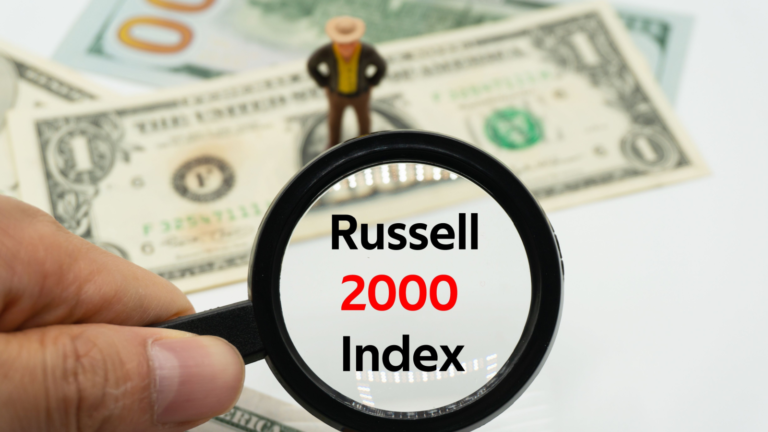Russell 2000 stocks jumped more than 3% on July 17. It was the small-cap index’s fifth consecutive day of gains. Investors are betting that future interest rate cuts will help smaller companies with more debt relative to equity on their balance sheets.
Despite the gains over these five days, the Russell 2000, which represents the 2,000 smallest companies by market capitalization, in the Russell 3000, is only up 11.8% year-to-date through July 17, 631 basis points less than the S&P 500.
Fundstrat Global Advisors Managing Partner Tom Lee believes the Russell 2000 has more upside.
“We have small caps even more oversold and valuations — whether you look at medium P/E, which is now at 10 times 2025 earnings — even lower,” Tom Lee told CNBC. “So we think that this move could be something like 10 weeks and as much as 40%. So I think it is just starting.”
That’s good news for small-cap investors.
If you buy Russell 2000 stocks in July, these three names should be on your list.
Brookfield Business Corporation (BBUC)

Brookfield Business Corporation (NYSE:BBUC) is a private equity firm created in June 2021 to provide investors in Brookfield Business Partners LP (NYSE:BBU) with an alternative investment vehicle through a corporate structure.
The company invests in three main areas: Business Services (36% of Q1 2024 adjusted EBITDA, Industrials (40%) and Infrastructure Services (24%).
“Since creating Brookfield Business Partners, we have now monetized 20 businesses and generated approximately $6 billion of proceeds at our share, realizing a 3x multiple on our investment and a composite IRR of approximately 30%,” stated CEO Anuj Ranjan and Executive Chairman Cyrus Madon in its Q1 2024 shareholder letter.
In the first quarter, it agreed to sell both its Canadian aggregates business and its UK and European road fuels operation for net proceeds of $390 million. The company’s share of the proceeds was $180 million, with the rest going to its investors.
As it said in its shareholder letter, Brookfield Business continues to find ways to use AI in its business. For example, it owns a dealer software and technology services operation. It uses an AI virtual assistant software tool to make its auto dealer clients more productive.
You should be interested in this spinoff if you know Brookfield Corporation (NYSE:BN).
Enstar Group (ESGR)

Enstar Group (NASDAQ:ESGR) acquires and manages insurance and reinsurance companies and portfolios in run-off in Bermuda and internationally. It is the world’s largest standalone run-off consolidator, having acquired over 115 companies since its predecessor was formed in 1993.
Run-off insurance is sold to insurance companies that have been sold, merged or ceased operations to protect against potential future claims.
Without getting too far into the weeds, one of the ways to evaluate whether to invest in the company’s business is by its book value per share. In the first quarter ended March 31, it was $341.53, 1.4% higher than at the end of December. Since 2003, Enstar’s compound annual growth rate for its book value per share is 16.1%. That’s first rate growth.
The second way to evaluate a business is adjusted return on equity (ROE). Between 2019 and 2023, it averaged 17.7%. Over the long term, it’s targeting adjusted ROE of low—to mid-teens. In 2023, it was 18.8% ahead of its target. There will be peaks and valleys with this metric. In 2022, it was -1.1%.
At the end of December, approximately 21% of its $18.2 billion in investable assets were invested in alternative investments such as private equity, private credit and real estate funds.
Its shares are up over 30% in the past year.
Taylor Morrison Home (TMHC)

I’m most familiar with Taylor Morrison Home (NYSE:TMHC). The Phoenix-based homebuilder went public in April 2013 at $22 a share. In July 2011, a trio of investment firms—TPG Capital, Oaktree Capital Management and JH Investments—acquired it for $955 million from UK home builder Taylor Wimpey.
Current CEO Sheryl Palmer was CEO for both the sale to the trio in 2011 and its IPO two years later. The company’s stock traded between $15 and $30 until September 2022. Its shares have since gained 179%.
In February 2020, the company acquired William Lyon Homes for $2.5 billion in a cash-and-stock deal of $950 million in stock and $1.55 billion in cash. The deal created the fifth-largest home builder in America.
The acquisition’s benefits included Taylor Morrison entering three new states, Washington, Oregon and Nevada, with a significant addition to its entry-level offerings. Moreover, the combined company would be in the top five in 16 of its 22 markets.
Based on a 2024 earnings per share estimate of $7.26, its stock trades at a reasonable 8.9x these earnings.
On the date of publication, Will Ashworth did not have (either directly or indirectly) any positions in the securities mentioned in this article. The opinions expressed in this article are those of the writer, subject to the InvestorPlace.com Publishing Guidelines.
On the date of publication, the responsible editor did not have (either directly or indirectly) any positions in the securities mentioned in this article.
